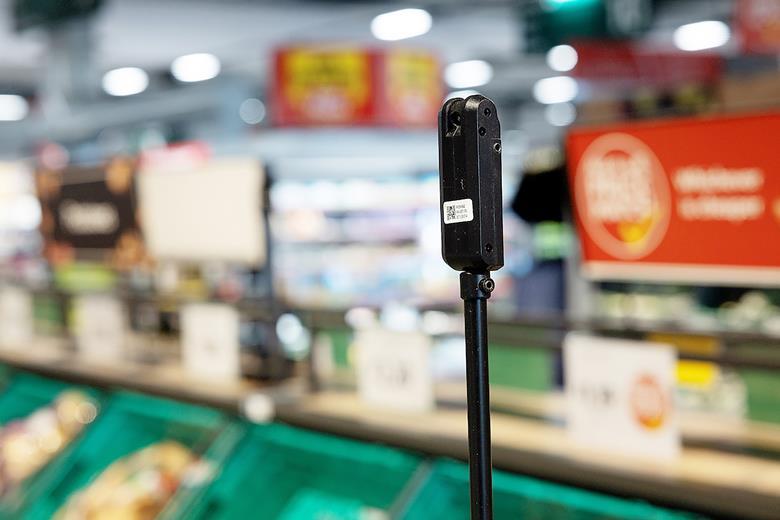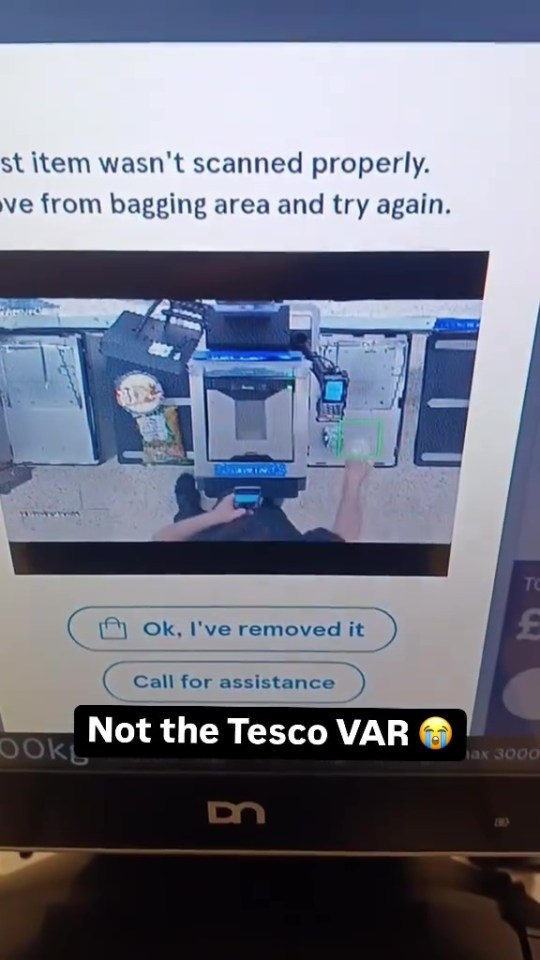A MAJOR supermarket is trialling AI-powered cameras to spy on shelves to tackle stock shortages.
Asda has selected five stores across the country, and the ‘breakthrough’ cameras can even detect when food has gone off.
The retailer is teaming up with Focal Systems cameras, which promise to scan shelves hourly to detect in-stocks, out-of-stocks, lows, and if products are in the wrong spot.
The mini robotics are placed on poles on the top shelf and can monitor around eight feet of shelf space opposite.
Focal Systems CEO Kevin Johnson told The Grocer: “Deep learning breakthroughs in computer vision have enabled the precise identification of products, shelf conditions and anomalies in highly complex and dynamic retail environments.”
He added that the data from the cameras will be processed locally, meaning a once “time-consuming process” is now fully automated.
Yesterday, Asda shoppers were hit with product disruptions and online delivery hiccups as a result of its £1billion IT overhaul.
Dubbed “Project Future”, the upgrade is one of the largest IT transformations in Europe and has caused disruption to product availability both in-store and online.
Allan Leighton, Asda‘s Executive Chairman, admitted the scale of the upgrade – affecting stores, depots, and offices – has created some turbulence – and that it would continue until the end of September.
He said the upgrade had led to “some temporary disruption with product availability” in stores and online, while it changes over from the old to the new system.
There have also been some issues with online deliveries.
This is expected to have an impact on the supermarket chain’s sales over the three months until the end of September.
Morrisons leads the way
Asda is also following in the footsteps of Morrisons, which began installing Focal Systems cameras in more than 498 supermarkets.
According to the tech business, it improved customer availability by more than two percentage points.
The cameras even nudge supermarket staff to top up supplies that are running short.
Waitrose is also getting on board with the trend and has begun trialling the technology at its Bracknell store.
Tesco and Sainsburys self service checkouts have also been fitted with cameras to replay shoppers’ last move if the item wasn’t scanned properly.
AI concerns
However, not everyone has welcomed the introduction of AI in supermarkets.
One shopper likened the cameras on the self-service tills to VAR.
“VAR Decision – Tuna Disallowed,” they joked on Instagram, with a video of his scanning difficulty.
“Clearly offside,” added another.
But on Bluesky, one user said: “What’s next? Drones to follow you about the store?”
On Facebook, another said they were ditching self-checkouts altogether after the technology was introduced.
But it could provide relief for staff.
One Tesco worker told the BBC that they were glad to see the assistance of AI in store.
“I work on self-service for Tesco and feel like I double up as a security guard,” they said.
“You’re not paid very well anyway, and then you have tills to look after.
“I quite often have to monitor 10 self-checkouts, on my own, whilst two staff cover manual checkouts,” they said, adding that there were many customers who steal and try to “con the system”.
Tech to tackle shoplifting
Shoplifting in the UK rose by 20 percent in 2024 – a record high.
The British Retail Consortium said there were 20.4 million thefts in the year to last September, which was up 3.7 million on the year before.
In April this year, Asda received thousands of complaints over its facial recognition technology.
The tech trial was branded “Orwellian” and “deeply disporportionate and chilling”.
The two-month tech trial was introduced to branches in Ashton, Chadderston, Eastland, Hapurphey and Trafford Park from March 31.
Big Brother Watch, a British privacy campaigning organisation, has labelled the supermarket’s use of this technology “deeply disproportionate and chilling”.
Senior Advocacy Officer Madeleine Stone said: “Facial recognition surveillance turns shoppers into suspects, by subjecting customers browsing the supermarket aisles to a series of biometric identity checks”.
She expressed her concern about the out of control use of the technology in the UK: “[It] has well-documented issues with accuracy and bias, and has already led to distressing and embarrassing cases of innocent shoppers being publicly branded as shoplifters.”
Asda stated the trial was a way of improving colleague and customer safety in stores, as well as combating the epidemic or retail crime.
The retailer cited the circa 1,400 assaults on Asda colleagues that were recorded last year, which averaged at four per day.
The Sun has contacted Asda for comment.
Artificial Intelligence explained
Here’s what you need to know
- Artificial intelligence, also known as AI, is a type of computer software
- Typically, a computer will do what you tell it to do
- But artificial intelligence simulates the human mind, and can make its own deductions, inferences or decisions
- A simple computer might let you set an alarm to wake you up
- But an AI system might scan your emails, work out that you’ve got a meeting tomorrow, and then set an alarm and plan a journey for you
- AI tech is often “trained” – which means it observes something (potentially even a human) then learns about a task over time
- For instance, an AI system can be fed thousands of photos of human faces, then generate photos of human faces all on its own
- Some experts have raised concerns that humans will eventually lose control of super-intelligent AI
- But the tech world is still divided over whether or not AI tech will eventually kill us all in a Terminator-style apocalypse














